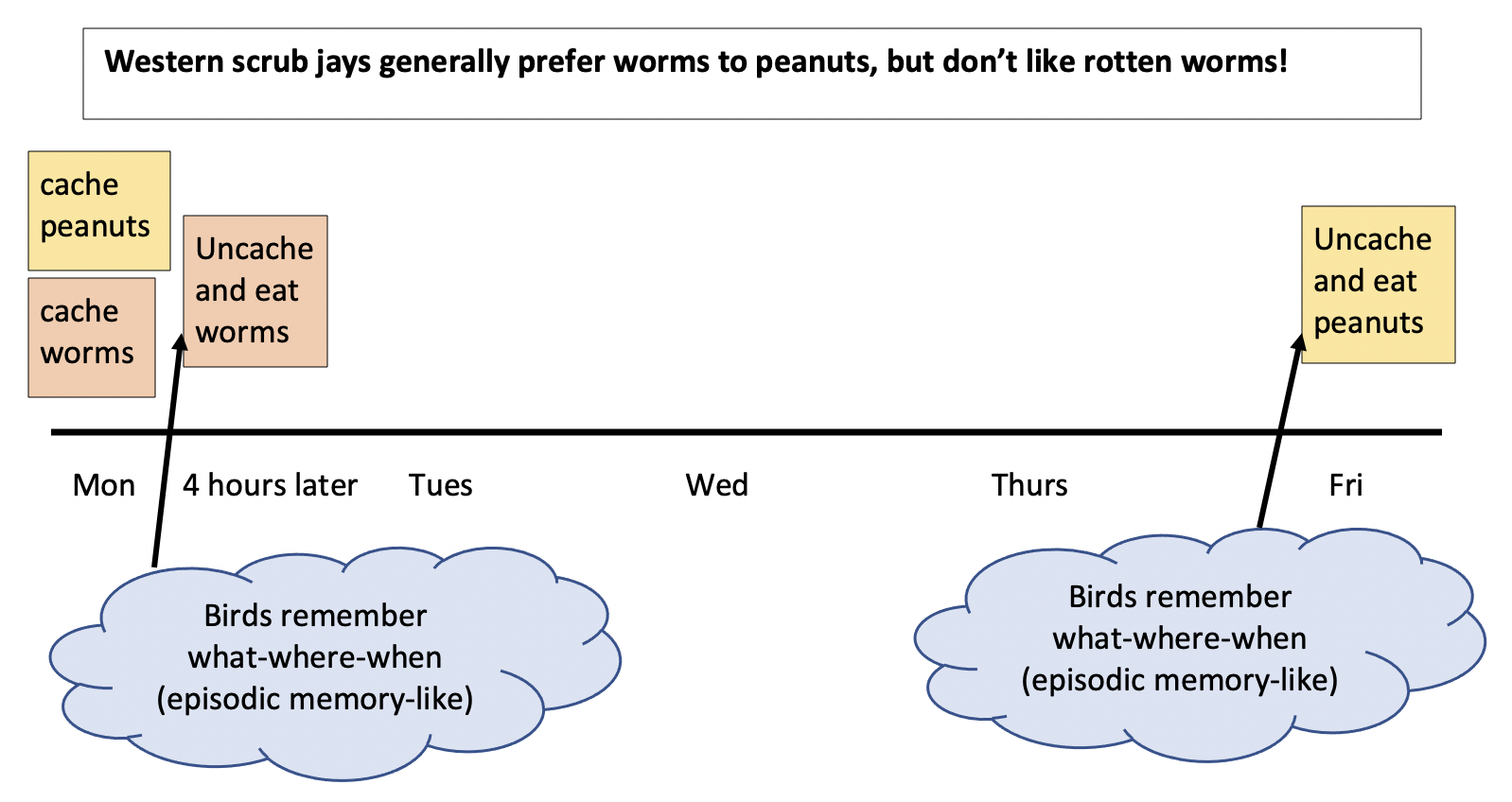Common problems on the midterm
_________________________
If we're grading animals on how self-aware
- Which abilities count as signs of self-awareness?
- Which abilities are actually found in animals?
_________________________
Desires and intentional action
Degrazia:
- When animals desire things, they desire...that I get X.
- So desires "implicate" self-awareness.
- Animals do have desires (some, sometimes). THEREFORE,
- Some animals are sometimes self-aware.
Should we take desire off the report card?
_________________________
Self-recognition with mirrors
Gordon Gallup (1970), 50 more years of research by him and others*
*Anderson, J.R., Gallup, G.G. Mirror self-recognition: a review and critique of attempts to promote and engineer self-recognition in primates. Primates 56, 317–326 (2015).
Gallup's conclusions--
- The way some animals behave with mirrors shows they have self-awareness. They have "that's me!" thoughts.
- He thinks this is only demonstrated in three species: us, chimpanzees, orangutans
Original mark test
Stage 1: Train chimp with mirrors. Stage 2: anaesthetize for 30 minutes and affix mark chimp can't see or feel without mirror. Stage 3: observe whether chimp looks in mirror and touches mark. If so, infer that chimp thinks "that's me" (self-recognition)
Mark test refinements
Put mark on wrist as well, to see if chimp is interested in body marks. If uninterested in wrist mark, not noticing mark in mirror means nothing.
Spontaneous use of mirror test
Does chimp spontaneously use mirror to examine hidden body parts? Gallup now thinks this is the more important test.
Is this evidence of a "that's me!" thought?
What did Howell say?
_________________________
"Olfactory Mirror Test"
Dogs sniff other dogs' urine longer than own urine (Mark Bekoff)
Gallup: can explain based on habituation--dog sniffs his own urine less because he's used to that smell
_________________________
Time Travel/Episodic memory/also called "autonoetic consciousness"
- Thinking of yourself doing something in the past
- Forseeing yourself doing something in the future
Episodic memory vs. other forms of memory
- Episodic memory (recalling YOURSELF doing things)
- Procedural memory (continuing to be able to do something)
- Semantic memory (memory for information)
Example 1: I remember lots of TV shows from my youth, but don't remember MYSELF watching them
You know where you car is when you come out of a supermarket
_________________________
Episodic memory in animals?
Evidence of episodic memory in scrub jays (Clayton and Dickinson 1998)
_________________________
Episodic memory (future oriented) in animals
The spoon test--do they take a tool along for some future use?
CROWS
Metacognition









No comments:
Post a Comment